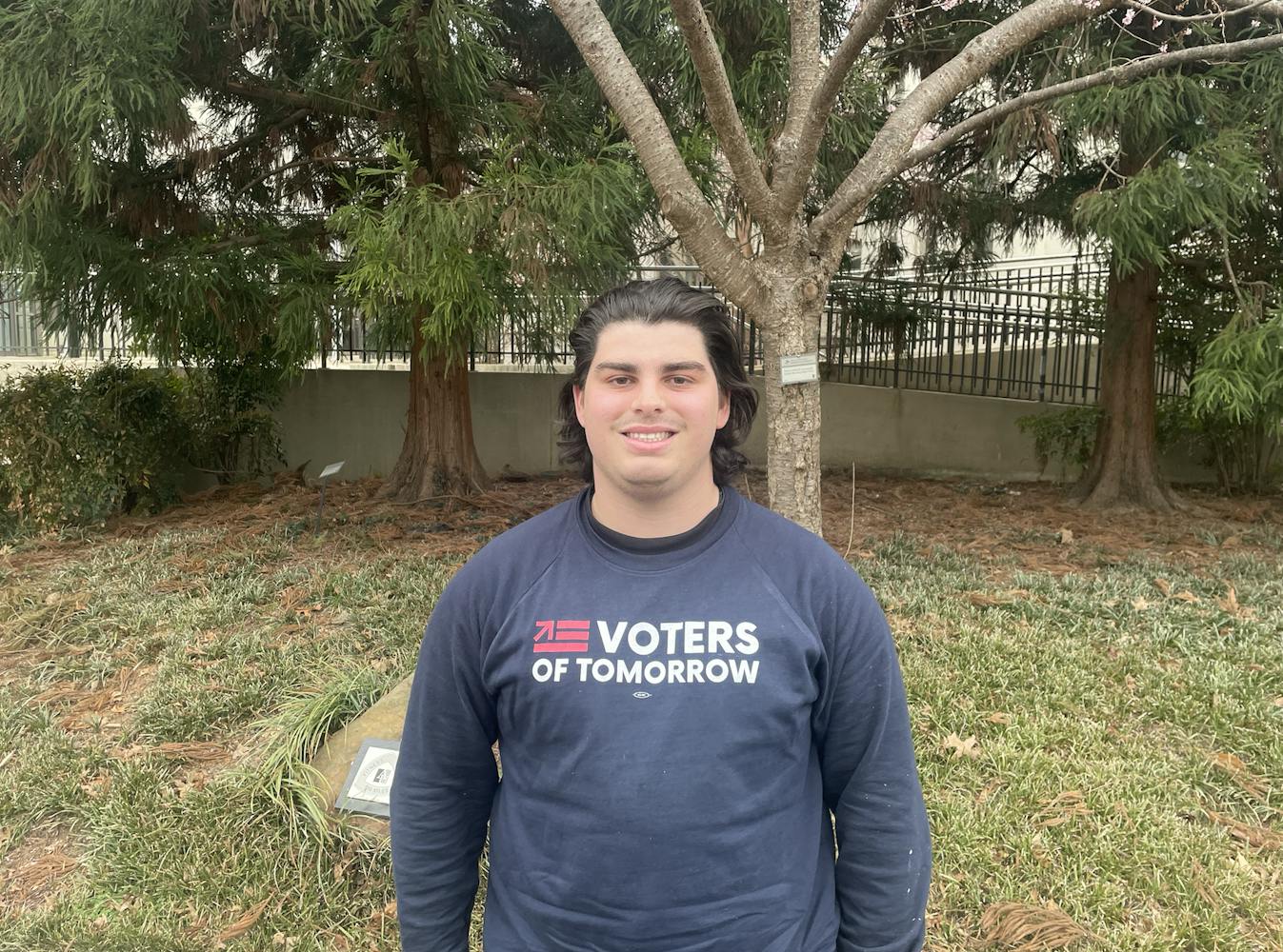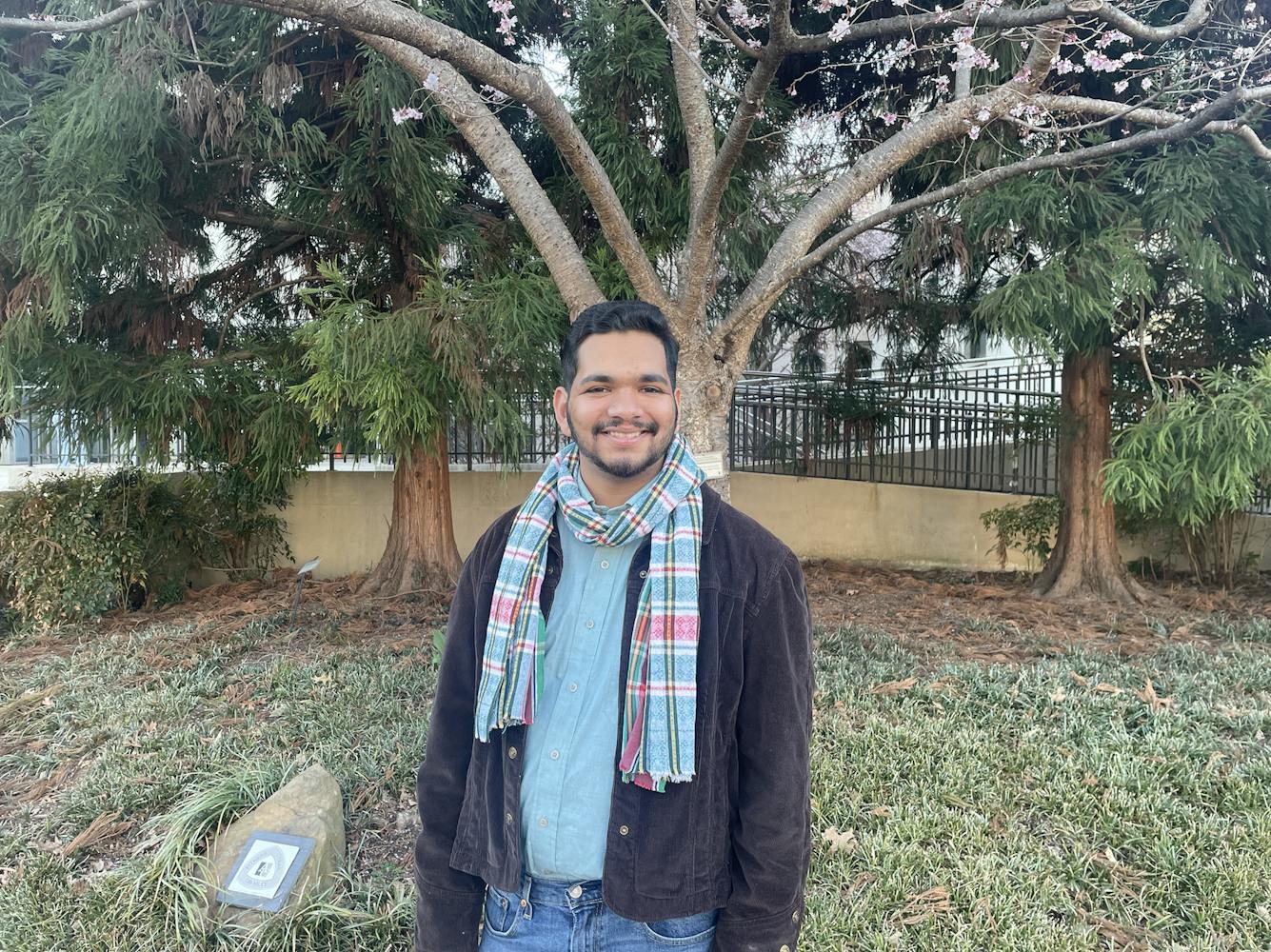From the Newsstands: This story appeared in The Eagle's April 2023 print edition. You can find the digital version here.
For Diego Carney, a freshman in the School of Public Affairs, his start in politics was through campaign work in high school. Sophomore in the College of Arts and Sciences Rohin Ghosh’s political engagement also began in high school through local community organizing in his California hometown. Now, at 19 years old, the two of them are some of D.C.’s youngest elected officials as the Advisory Neighborhood Commissioners for American University’s campus.
What are ANCs?
In the district, ANC commissioners represent a part of their neighborhood in nonpartisan, unpaid elected positions. Established in 1976, three years after Congress granted D.C. home rule, they are the voice of the neighborhood to the local government and serve two year terms.
While ANCs don’t have legislative power, they can present resolutions on issues such as zoning and liquor licenses, and they work closely with other elected officials who do have the power to pass laws. AU is part of district 3E, which includes Tenleytown and Friendship Heights.
As the elected commissioners for AU’s two on-campus districts, Carney, representing district 3E07, and Ghosh, representing 3E08, advocate for students on neighborhood issues.
Diego Carney
Carney was born in Panama and lived there until eighth grade when he moved to the D.C. area. He attended high school in Bethesda, Maryland. As a CLEG major, he also works as the director of communications for the D.C. chapter of Voters of Tomorrow.
After deciding to run for ANC as a write-in candidate at the beginning of this school year, Carney ended up in a tiebreaker with fellow freshman Micah Rogers. Per D.C.’s drawing of lots law, a coin flip ended with Carney as the victor on Dec. 12. ANC 3E hosts Zoom meetings on the second Thursday of every month at 7:30 p.m. There, eight commissioners discuss neighborhood issues and propose solutions. The main issues Carney is focusing on in his term are affordable housing and bike lanes, which are especially pertinent for college students.
Carney said the reactions he has received from the community have been overwhelmingly positive, especially considering the highly political environment of AU.
“My mom thinks it’s the coolest thing in the world,” Carney said. “I love my mom. She thinks I’m like the president of Tenleytown. I had to tell her no.”
Carney said that he tries to appreciate every opportunity to learn and encourages others to do the same.
“I’m young. I’m still a college student. But I do feel like I can at least try to make an impact in the community.”
Rohin Ghosh
Ghosh, an American Studies major in the College of Arts and Sciences, started out doing local tenant organizing in his hometown of Palo Alto, California. When he started at AU in 2021 as a Community-Based Research Scholar, he continued volunteering. Since Sept. 2022, he has worked as an eviction defense canvasser and tenant organizer for the Latino Economic Development Center. Through this work, Ghosh said he was able to better understand the depth of the housing crisis and how it intersects with other issues such as racial inequity.
When Ghosh learned of the opportunity to run for ANC, he got help from AU alumnus Christian Damiana, who held the seat before he did.
The main issues that Ghosh is focusing on are workers’ rights, tenants' rights and combating police violence.
“The lack of good, quality, affordable housing options around campus is “not only exclusionary to Black and brown Washingtonians [who] are locked out of here, it also contributes to housing problems for students,” Ghosh said.
One thing that the ANC has direct power over is guiding development and zoning processes. Ghosh said that the neighborhoods in and around AU have the potential to be more dense by adding more affordable housing. Additionally, Ghosh wants to repurpose road space to safely accommodate cyclists and pedestrians and improve transit access, since many students don’t drive.
Ghosh said that the biggest challenge in this role for him so far has been time management as a full-time student and an elected official.
“ANCs are often not given the type of weight that they should be ... their role is not given the resources it needs,” Ghosh said. “That is especially true for young ANCs, especially true for ANCs of color ... and for women ANCs.”
A lot of the time, community members view student issues as separate from district issues at large, according to Ghosh.
“We are still residents of the district just as much as anyone else who lives here is, and have needs and effects on the district just as everyone else does,” Ghosh said.
Ghosh’s long term goal is “working on building a network of progressive, left-minded ANCs across the district so that we have a really strong coalition across all eight wards to push on issues that affect students, working people, tenants [and] transit riders.”
Carney and Ghosh are regular collaborators and often find themselves with similar things to say at ANC meetings. Ghosh says he considers them to be partners in their work.
According to Ghosh, the ANCs are a “real need and unique opportunity that we have as students to actually have a seat at the table of local government.”






